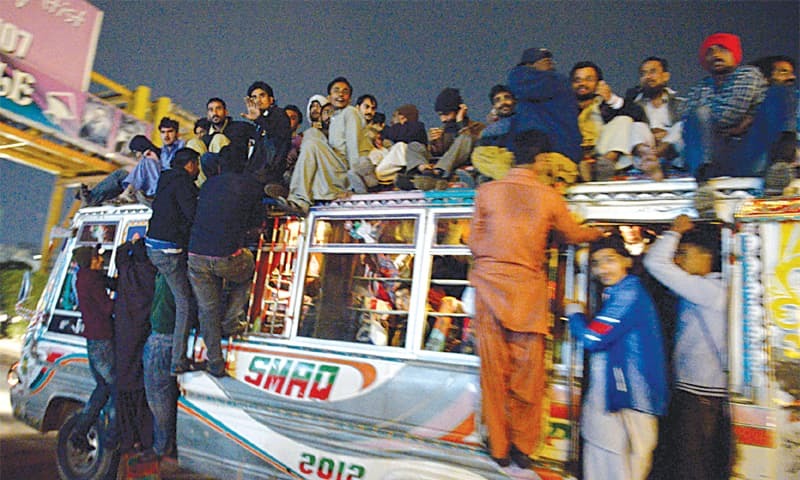A NEW study just released on Karachi’s mass transit crisis makes one point very clear: there are some areas of public life that cannot be left to the vagaries of the private sector alone.
According to the study, the state had already begun farming out the transport business to private-sector operators in 1971 under the free transport policy, but it was in 1997 that it withdrew from the obligation altogether with the disbandment of the Karachi Transport Corporation.
Take a look: Karachi’s public transport on the verge of collapse: report
Since then, mass transit in the country’s largest city, with an estimated population of 22m, has been left entirely to the private sector, which has struggled to keep up. Today, Karachi faces a shortfall of 8,676 buses on its roads.
The authors of the study detail two separate attempts since the end of the KTC to bring about some sort of public-private partnership in the transport sector.
The first attempt was the Urban Transport Scheme in 2001 in which investors were invited to acquire routes and service them on government-controlled terms.
The other attempt came in 2005 in the form of a donor-driven initiative to revive the Karachi Circular Railway that ran between 1964 and 1999, and was used by approximately 6m passengers per year at its peak.
In both cases, the schemes have failed to take off due to the inability of the government to manage its responsibilities.
In fact, as the authors list one initiative after another over the decades since independence, it becomes clear that factors such as poor maintenance and inability to manage routes properly have been the reason why the government has failed in fulfilling its obligations in the mass transit area.
The failure of KCR to move along in spite of the availability of financing, and all relevant studies, and its induction in the Karachi Transportation Improvement Project of 2010-12, is due to “the lack of political will and the absence of ownership of the project”.
They also mention “the failure to develop a resettlement policy” for 23,000 people to be dislocated by the project. This contrasts with the slash-and-burn resettlement that was undertaken in the Lyari Expressway project.
Clearly, the play of vested interest has been aligned favourably behind the expressway, but not the KCR. Karachi is home to the country’s largest concentration of working people, their commuting needs cannot be left to the private sector alone.
The government must find its feet and move towards a viable mass transit system for the city.
Published in Dawn, January 26th, 2015
On a mobile phone? Get the Dawn Mobile App: Apple Store | Google Play













































